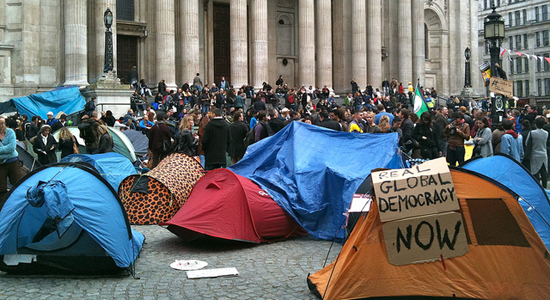 Richard Barone is an example to all of us who get trapped in our daily grind. He seems to be the perpetual glass-half-full kind of guy. He admits he feels pretty much the same way he did 30 years ago when Barone on lead vocals and guitar along with bassist Rob Norris and drummer Frank Giannini gave birth to the Bongos, a wonderful, jangly power-pop combo that could light up any room with its overflowing energy. It’s difficult to believe that their new album, Phantom Train (Jem), is not really new at all. With guitarist James Mastro added to the band, it was cut in 1985 and 1986 and has languished on the shelf ever since. Barone has also kindly agreed to serve as guest editor for magnetmagazine.com all week. Read our brand new Q&A with him.
Richard Barone is an example to all of us who get trapped in our daily grind. He seems to be the perpetual glass-half-full kind of guy. He admits he feels pretty much the same way he did 30 years ago when Barone on lead vocals and guitar along with bassist Rob Norris and drummer Frank Giannini gave birth to the Bongos, a wonderful, jangly power-pop combo that could light up any room with its overflowing energy. It’s difficult to believe that their new album, Phantom Train (Jem), is not really new at all. With guitarist James Mastro added to the band, it was cut in 1985 and 1986 and has languished on the shelf ever since. Barone has also kindly agreed to serve as guest editor for magnetmagazine.com all week. Read our brand new Q&A with him.

Barone: Yes, it was messy and chaotic, but at its peak the Occupy Wall Street movement did a great job of stirring things up; raising some questions and encouraging the raising of some voices in the name of fiscal equality. It was criticized by many for being unfocused, without clear-cut leadership or demands. Still, it served a larger purpose by bringing issues of financial inequity to the headlines on a daily basis. In the same way that John Lennon and Yoko Ono staged bed-ins for peace in the late 1960s (Lennon was quoted as saying one his reasons was to get the word “peace” in the headlines as much as the word “war”), the OWS actions were a broad statement that something was wrong, for example, when banks are bailed out at the public’s expense. As simple as that. I was performing on a bill with Pete Seeger, Tom Chapin, David Amram, Suzanne Vega and others when we were joined at the Symphony Space door at 95th Street by hundreds of OWS protesters, inviting the performers to march with them down the 36 long blocks downtown to Columbus Circle, in front of CNN headquarters. The media had been alerted, and followed along. Helicopters flew overhead. At age 92, Seeger, walking with two canes, led the way and led the songs. Somewhere along the route I was asked to contribute a song to Occupy This Album, a benefit project which would include “99 songs for the 99{e5d2c082e45b5ce38ac2ea5f0bdedb3901cc97dfa4ea5e625fd79a7c2dc9f191},” by 99 different artists. My collaborator Matthew Billy went to the New York Public Library the next day to research classic protest songs so that ours would carry a historical thread. At the bottom of the list was the gentle but persuasive “Brother, Can You Spare A Dime?” from the Great Depression. In an all-night writing session we updated it for the OWS, and made “Hey, Can I Sleep On Your Futon,” which we recorded the next morning.
Video after the jump.






